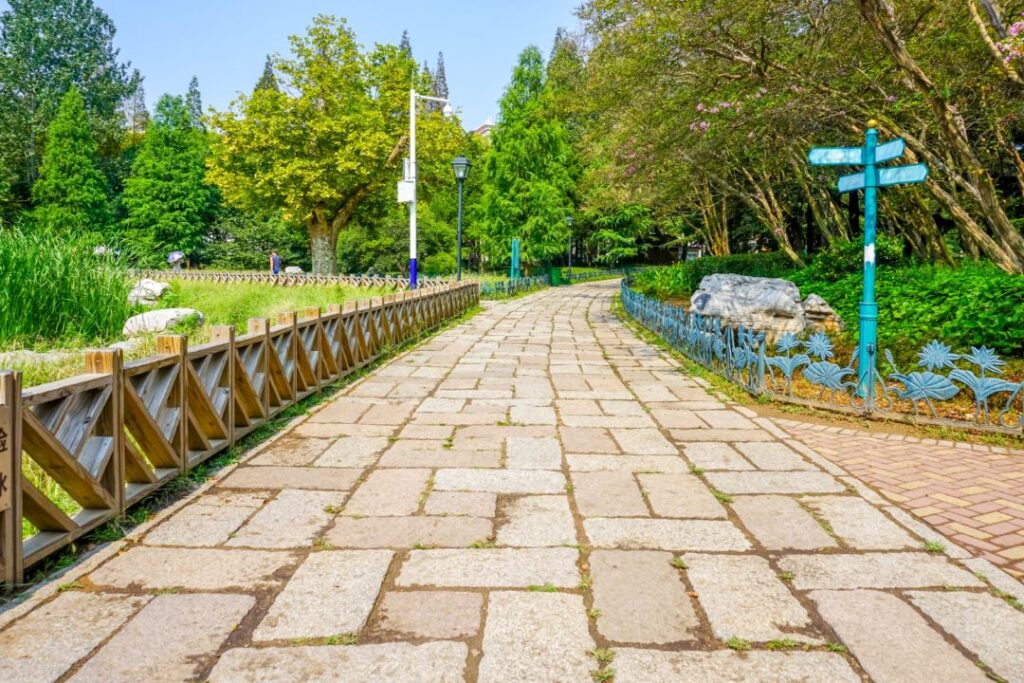With summer in full swing, patios, walkways, and pool decks become the heart of outdoor activity. For GTA homeowners, choosing the right pavers for high-traffic areas is essential—not just for durability, but also for aesthetic appeal and safety. Whether you’re upgrading a patio or creating new pathways, the right choice ensures your landscape stands up to foot traffic, furniture, and the elements.
In this guide, we’ll break down how to select pavers that can handle summer’s busiest months with ease.
Why Paver Selection Matters in High-Traffic Zones
High-traffic outdoor areas—like backyard entertaining zones, pool surroundings, and front walkways—require materials that are:
-
Durable: To withstand constant footfall and heavy use
-
Slip-resistant: Especially important near water or pool zones
-
Low-maintenance: So your summer is spent enjoying, not repairing
-
Heat-tolerant: To avoid overheating under the summer sun
-
Visually appealing: To complement your landscape design
With so many options available, it’s important to choose pavers that balance function and form.
Best Paver Materials for Summer Durability
Here are the top materials suited for high-traffic outdoor spaces in the GTA:
1. Concrete Pavers
A popular, budget-friendly option that comes in a wide variety of colors and finishes. Modern concrete pavers are highly durable and can mimic natural stone.
Pros: Affordable, customizable, easy to replace
Best for: Walkways, patios, driveways
2. Natural Stone Pavers
Includes flagstone, granite, limestone, and travertine. Natural stone adds a luxurious and timeless feel.
Pros: Visually stunning, long-lasting
Best for: Premium patios, pool surrounds, garden paths
3. Interlock Pavers
Designed to lock tightly together, these are especially good for structural integrity and shifting climates.
Pros: Extremely durable, flexible under pressure
Best for: Driveways, high-traffic patios, walkways
Want to learn more? Explore interlock paver installation with our expert team.
Consider Texture, Color & Finish
Summer-ready pavers should not only be strong but also comfortable and safe underfoot. Here’s what to look for:
-
Textured surfaces provide better traction (especially near pools)
-
Lighter shades reflect heat and stay cooler in the sun
-
Tumbled or matte finishes add a natural, non-glare appearance
-
Consistent thickness helps avoid trip hazards in high-traffic zones
These details make a big difference in usability and long-term satisfaction.
Size and Pattern Matter, Too
For high-traffic areas, the paver layout affects both function and style. Consider:
-
Larger pavers for modern designs and fewer joints
-
Small or modular pavers for classic or intricate patterns like herringbone
-
Tight joint spacing to reduce weed growth and improve stability
Choose a pattern that fits your outdoor layout while enhancing movement and durability.
Don’t Forget the Base Preparation
Even the best pavers will fail without a proper base. A professional installation includes:
-
Grading and compacting the soil
-
Installing a gravel base and sand bedding layer
-
Edge restraints to hold pavers in place
-
Polymeric sand to fill joints and reduce shifting
Proper prep ensures your pavers stay in place even under heavy use and changing weather conditions in the GTA.
Professional Help Makes a Difference
Selecting the right pavers involves more than just picking a color—it’s about designing a functional and beautiful space that lasts for years. At BYG Landscaping, we help GTA homeowners choose and install pavers tailored to their needs, style, and usage.
From patios to pool decks, our hardscaping services cover every detail, from material selection to final installation.
FAQs
What are the most durable pavers for summer use?
Interlock and natural stone pavers are among the most durable for high-traffic areas and stand up well to Ontario’s seasonal changes.
Can pavers get too hot in the summer?
Yes, especially darker pavers. Opt for lighter shades or heat-resistant materials like travertine for poolside use.
Do I need to seal my pavers?
Sealing can protect against stains and fading, especially in high-use areas. It’s recommended but not always necessary.
How long do pavers last?
With proper installation and maintenance, pavers can last 20–30 years or more.
Are pavers better than poured concrete for patios?
Yes, especially for high-traffic areas. Pavers offer better drainage, crack resistance, and design flexibility.

